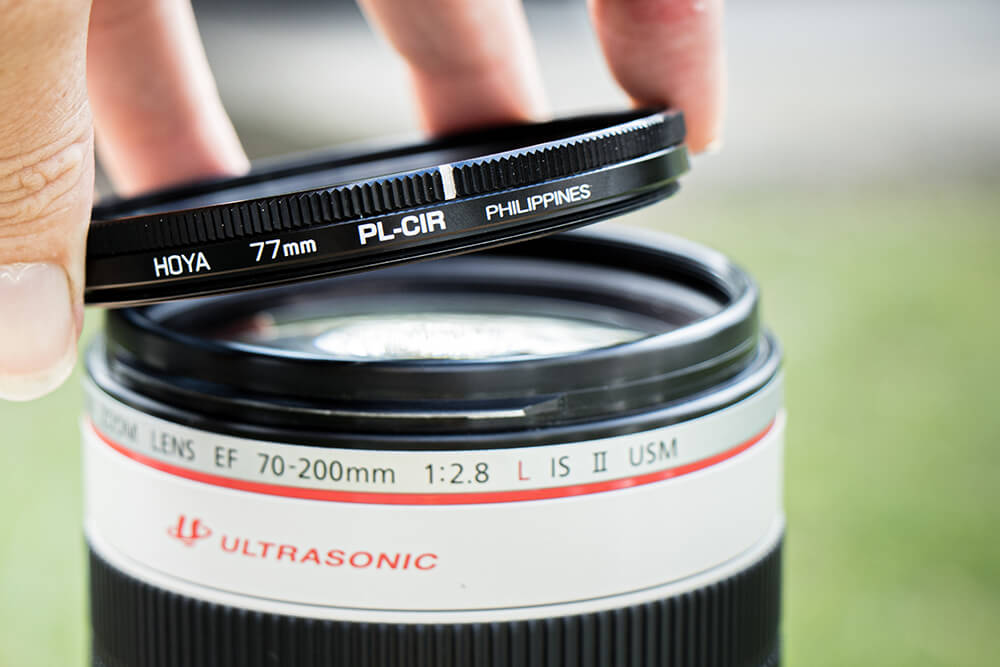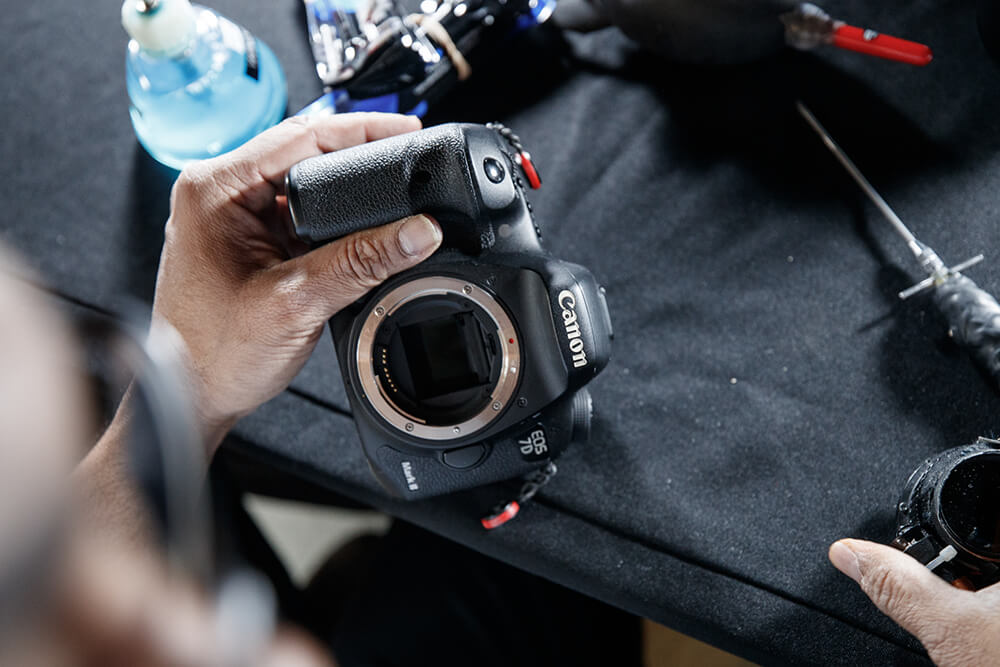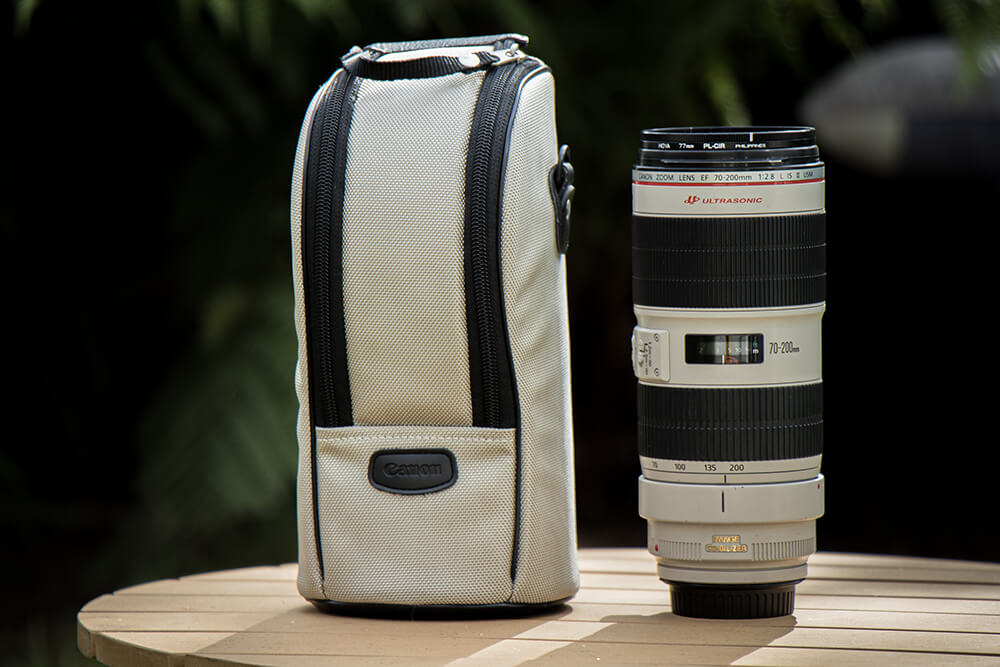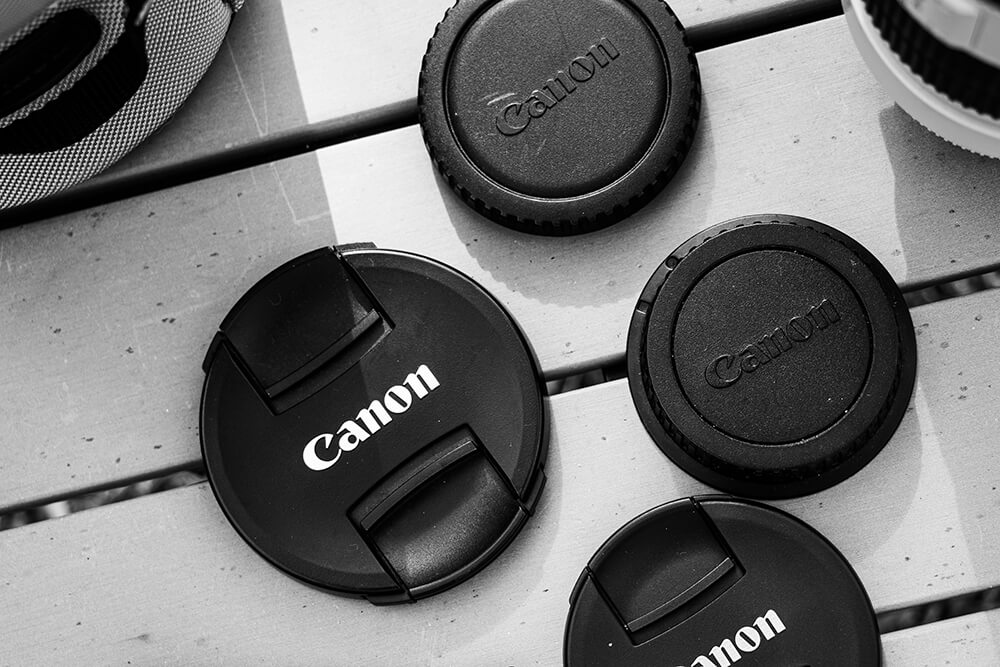- How to Clean and Maintain Your Camera Gear: Tips and Techniques with Jenn Cooper
-

Learn how to take proper care of your camera gear with this step-by-step tutorial by Canon Photographer, Jenn Cooper.
Photography is all about capturing light, and light enters your camera via the lens. If your lens gets scratched or damaged in any way, not only will it cost you a lot of money to repair, but your images will also be negatively affected.
You can protect your lenses quickly and relatively affordably simply by adding screw-on protection filters. This means that if your camera or lens is accidentally knocked or dropped, the filter will take the brunt of the impact rather than the lens itself.

Any dirt or smudges on your lens or filter will be picked up in your final images so it’s important to keep them clean. A simple microfiber lens cleaning cloth is extremely important to have in your kit bag. You may even benefit from having two cloths: one for cleaning wet or greasy smudges, and another for drying.
If you find your lens has dust or sand on it, be careful not to rub or smudge it into the glass and cause further damage to your lens or filter. In this scenario you may be better off using a lens blower brush to gently blow away the dirt
If you have dust on your camera sensor then you will be able to see small dark dots and/or smudges in your photographs. You can work out if your camera sensor has dust on it by taking a photo of the sky or a plain white piece of paper and looking to see if there are dark dots or smudges in your photos.
If you do discover that you have dust on your sensor, it is highly recommended not to clean it yourself but to take your camera to a professional Canon service team so that they can fix the problem for you. If you're in Australia you can submit your camera for service here.

If you plan on shooting anywhere near water, whether it be near a waterfall or by the sea, it’s always best to take a wet weather jacket/cover for your camera. These covers allow you to access and use your camera while keeping it dry, clean and protected from water.
It’s also important to note that although some Canon cameras are weather sealed, this doesn't mean that they are entirely waterproof. Photographers should exercise common sense when using their gear near water. Just as we wouldn’t leave our laptops out in the rain, it’s also not a good idea to leave our cameras out in or near water either.
If you do get caught out in the rain during a shoot, be sure to wipe away the water using a dry microfiber cloth. This will usually be enough after a light shower. If however you're caught in a heavy downpour then do not turn your camera back on until you are certain it has dried off completely. If you're still concerned, then take it to a Canon professional service team so they can check it over for you.
If you travel with multiple lenses, or detach your lens from the camera body, which you should do while travelling, it’s essential to keep your lenses in some sort of protective bag. This will ensure they remain intact even if your bag takes a tumble, and it will also keep dust, dirt and water away from your lens elements.

It's amazing how easily you can lose your camera body and lens-back caps. If you don't have a spare then you run the risk of having to leave your camera or lens exposed, allowing for dust and water to easily access the most delicate part of your gear. Likewise, it’s always a good idea to carry an extra lens cap to protect the front element of your lens.

It’s always a good idea to store your camera gear somewhere where it can air out while you’re not using it. Try to avoid leaving your camera zipped up in a camera bag where mould can grow, especially if you have been shooting in the rain or near water. And do not leave your gear in direct sunlight.
Last but not least, if you aren’t planning on using your camera for some time, then be sure to remove the battery as it can drain further if it's kept in the camera for long periods of time without use.
Get more photography tips here.

Canon photographer Mark Clinton put his 5D Mark IV kit to the ultimate test when partnering with professional skiier, Fraser McDougall in New Zealand's Wanaka wilderness in a high-flying collaboration to get the shot. Watch the video here.

Dr. Chris Brown journeys to Northern Japan for the ultimate test in low light performance – astrophotography with the EOS R and RF lenses. Check what he captures in this 24-hour challenge

Travel photographer Jarred Seng captures the intricate art of Samurai sword manufacturing with the new EOS R. See his first impression and what he captures on his 24 hours with the new EOS R.